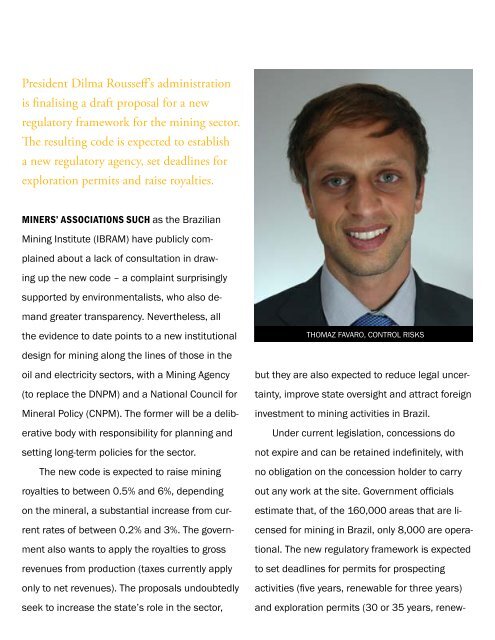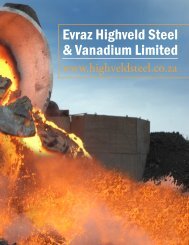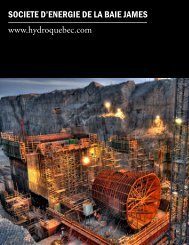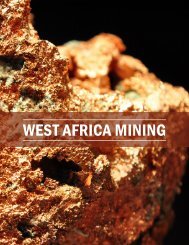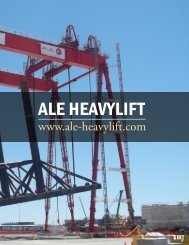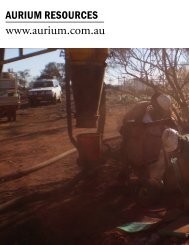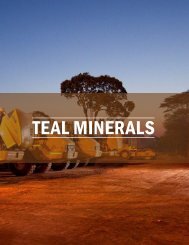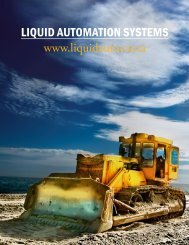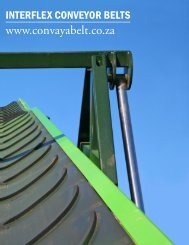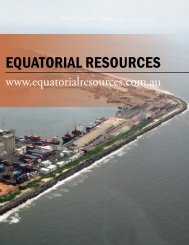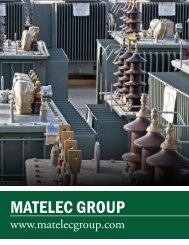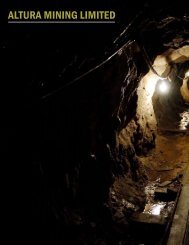106 - The International Resource Journal
106 - The International Resource Journal
106 - The International Resource Journal
You also want an ePaper? Increase the reach of your titles
YUMPU automatically turns print PDFs into web optimized ePapers that Google loves.
FEBRUARY 2013 <strong>The</strong> <strong>International</strong> <strong>Resource</strong> <strong>Journal</strong>29President Dilma Rousseff’s administrationis finalising a draft proposal for a newregulatory framework for the mining sector.<strong>The</strong> resulting code is expected to establisha new regulatory agency, set deadlines forexploration permits and raise royalties.Miners’ associaTIons such as the BrazilianMining Institute (IBRAM) have publicly complainedabout a lack of consultation in drawingup the new code – a complaint surprisinglysupported by environmentalists, who also demandgreater transparency. Nevertheless, allthe evidence to date points to a new institutionalThomaz FAVARO, Control Risksdesign for mining along the lines of those in theoil and electricity sectors, with a Mining Agency(to replace the DNPM) and a National Council forMineral Policy (CNPM). <strong>The</strong> former will be a deliberativebody with responsibility for planning andsetting long-term policies for the sector.<strong>The</strong> new code is expected to raise miningroyalties to between 0.5% and 6%, dependingon the mineral, a substantial increase from currentrates of between 0.2% and 3%. <strong>The</strong> governmentalso wants to apply the royalties to grossrevenues from production (taxes currently applyonly to net revenues). <strong>The</strong> proposals undoubtedlyseek to increase the state’s role in the sector,but they are also expected to reduce legal uncertainty,improve state oversight and attract foreigninvestment to mining activities in Brazil.Under current legislation, concessions donot expire and can be retained indefinitely, withno obligation on the concession holder to carryout any work at the site. Government officialsestimate that, of the 160,000 areas that are licensedfor mining in Brazil, only 8,000 are operational.<strong>The</strong> new regulatory framework is expectedto set deadlines for permits for prospectingactivities (five years, renewable for three years)and exploration permits (30 or 35 years, renew-


